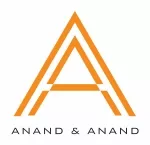Social Media platforms is currently the most popular medium amongst content creators. It provides an easy and powerful access to the content creators to publish and broadcast their content. However, such easy accessibility poses its own challenges and nuances. Misuse of Intellectual Property, spread of fake news, obscene content are some of such nuances. This raises the question on the role of social media intermediaries in dissemination of such fake and obscene content. With respect to the violation of Intellectual Property Rights, social media intermediaries could be held responsible only in cases where even after having reasonable "knowledge" of the infringement taking place on its platform they failed to take down such content.
The Information Technology (Intermediary Guidelines and Digital Media Ethics Code) Rules, 2021 (the "IT Rules") which came into effect from 25 February 2021 laid down some specific compliance requirements for social media intermediaries. These compliances were essential if such social media intermediaries intended to rely on the 'Safe Harbour' defence given under Section 79 of the Information Technology Act, 2000. This Section gives protection/immunity to an intermediary from being held liable for third-party content on its platform in cases where the social media platform is successful in proving that it had exercised adequate 'due diligence' while discharging its duties under the Act.
Some of the significant points regarding the IT Rules are as under:
- The IT Rules require social media and other intermediaries to observe due diligence by making reasonable efforts to cause their users not to host, display, upload, modify, publish, transmit, store, update or share any information which is (a) harmful to children (b) infringes the trademark, copyright, patent or other proprietary rights (c) impersonates another person, (d) is defamatory, obscene, invasive of the privacy of another person, is racially or ethnically objectionable, (e) violates any law for the time being in force.
- They provide for a grievance redressal mechanism by which users or victims may submit a complaint to the Grievance Officer of the intermediary against violation of the IT Rules. The IT Rules also require the Grievance Officer to act in a time bound manner after receiving a complaint in the nature of request for removal of information or communication link.
- It is mandatory for all significant social media intermediaries (that is, intermediaries having more than 50 lakh registered Indian users) to compulsorily appoint (a) Chief Compliance Officer who could be a KMP of such company or any other senior employee of such social media company and who is a resident of India, and (b) a Nodal Officer who would be available 24*7 for coordination with the law enforcement agencies.
- It prescribed various due diligence requirements that these social media intermediaries were required to adhere to.
While such Rules were introduced to check the spread of fake news, hate speech, online harassment, it was found that in some cases the social media intermediaries were using the powers given to them under the IT Rules in an arbitrary manner. It had come to the Government's notice that in some cases social media intermediaries (such as Twitter) were suspending the accounts of its users without giving such users an opportunity of being heard. This was clearly violative of the constitutional rights of an Indian citizen under Article 14,19 and 21 of the Indian constitution.
In order to put a check on this practice the Indian Government recently launched the Grievance Appellate Committee ("GAC") portal, available at: https://gac.gov.in/. This is an online dispute resolution mechanism established under the IT Rules. This mechanism allows the social media users to submit an appeal against decisions of social media platforms. The GAC deals with the appeals of users (Digital Nagriks) aggrieved by decisions of Grievance Officers of social media intermediaries. Any social media user who is aggrieved by a decision of the grievance officer of an intermediary (for example Meta or Twitter) can submit their appeal or complaint through the new portal https://gac.gov.in within 30 days of receipt of communication from the Grievance Officer.
As we are well aware social media intermediaries have no role in content creation. They are only a platform for receiving, storing and transmitting the information which it has received. It only acts as a bridge between the content creator and the ultimate viewer/user. Hence is it prudent to hold a social media intermediary liable for anything posted on its platform by a content creator. Any strict defensive action taken by intermediary could infringe on the fundamental rights of an Indian citizen. It is therefore essential now for social media intermediaries to become more vigilant and exercise their duties in a diligent manner. It is also essential for them to adopt newer technologies which would not only track and prevent any potential breach of IPR but would also track and restrict the spread of defamatory or offensive content on their platform. Use of such measures could strengthen the defence of social medial intermediaries and they can in such cases exercise the immunity given to them under the Information Technology Act (Safe Harbour principle).
The content of this article is intended to provide a general guide to the subject matter. Specialist advice should be sought about your specific circumstances.


